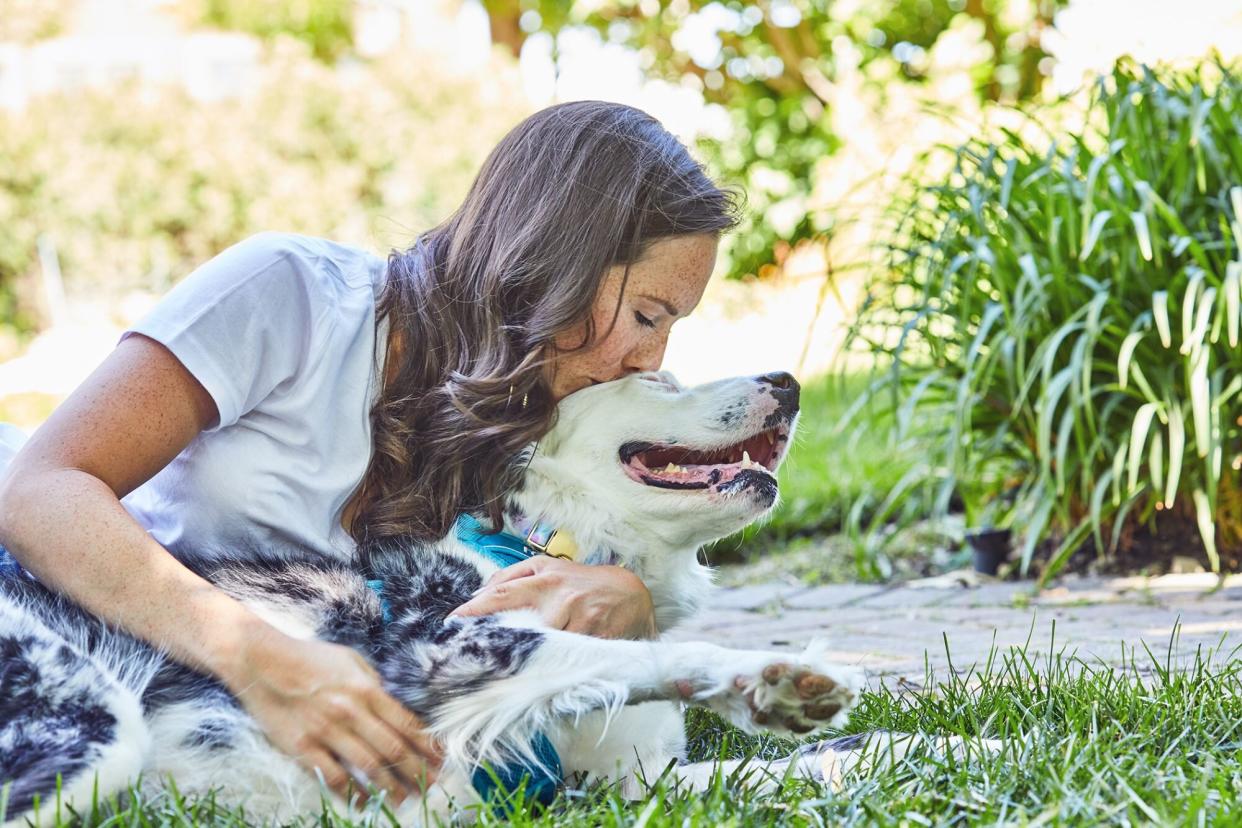Allergic to Dogs? Your Pet's Sex May Play a Big Role, Studies Suggest

Jason Donnelly
According to the Asthma and Allergy Foundation of America, as much as 20 percent of the population suffers from pet allergies, but people still want the unconditional love of a best furry friend.
While there's really no such thing as a completely hypoallergenic dog, a few come close, such as the bichon frise, Kerry blue terrier, and poodle—along with their many doodle and poodle mixes. But here's a twist: If you're allergic to dogs, studies suggest your pet's sex may be the reason.
RELATED: Are There Hypoallergenic Cats? Scientists Are Getting Closer to Making That a Reality
Why Are Many People Allergic to Dogs?
Individuals with dog allergies are triggered by one (or all!) of five proteins found in dead skin cells known as dander, as well as dog urine and saliva. Although these allergens aren't produced in animals' fur, dog breeds that shed less tend to be more tolerable for people with allergies, because there's less dander and licked fur floating in the air.
The five proteins are Can f 1, Can f 2, Can f 3, Can f 4, and Can f 5. Some people might only be triggered by one of these, while others react to a combination of them. Studies indicate that more than half of people with multiple allergens are "polysensitized."
"Typically, it's an accumulation of multiple allergens," according to Laura Wilson, DVM, DACVD, a veterinary dermatologist at Lighthouse Veterinary Allergy and Dermatology. Individuals with specific allergies to only one protein are "monosensitized" and more rare.
How Male and Female Dogs Might Cause People to React Differently
In a 2019 U.S. study, with results published in The Journal of Allergy and Clinical Immunology, researchers tested whether individuals with pet allergies responded the same way to male and female dogs, as the animals don't produce all five proteins. For example, Can f 5 is only produced by intact male dogs—meaning they haven't been neutered yet.
Seven of the 22 children tested were monosensitized to Can f 5. The study found that those with particular sensitivity to Can f 5 were much more tolerant of female dogs than male. In fact, of those seven kids, only one also reacted to the female dog.
In 2019, Italian researchers also tested Can f 5 response in more than 500 adult respondents, and of dog-sensitized individuals, "data confirmed that there is a high number of sensitized patients to Can f 5, which have a high degree of allergic sensitization." Three years prior, a Swedish study featuring 70 adults found that more than 50 percent had Can f 5 sensitivity, but didn't react nearly as much to female or castrated dogs.
Keep in mind: Animals produce varying levels of their specific proteins. It's one of many reasons why some people with dog allergies are totally fine around Labradoodles—who were bred specifically to be more (but not completely!) hypoallergenic—while others might still sniffle and sneeze.
What You Can Do to Reduce Dog Allergies
If you notice more of a reaction around unneutered male puppies of any breed, consult an allergist about it. They'll administer an immunocap test, which helps determine the level of allergy sensitivity you have and if Can f 5 is a culprit. If so, it's possible—possible—that once that pup is neutered, your reaction might be less severe. You might still be polysensitized to the other dog proteins, but your allergist can evaluate that, too.
With guidance from their physician, people with dog allergies might use prescription or over-the-counter daily medication, receive allergy shots, and use air purifiers in their home. Proper grooming helps, too. This way, they can nuzzle their pups as much as they can tolerate!
Some people with dog allergies still long for a furry pal. We totally get it! Often these individuals will foster dogs for a while to see if and how they respond to certain breeds—this is important to do even if a dog is considered somewhat hypoallergenic. Plus, this practice helps socialize pups to a human and home environment and prepare them for adoption.

